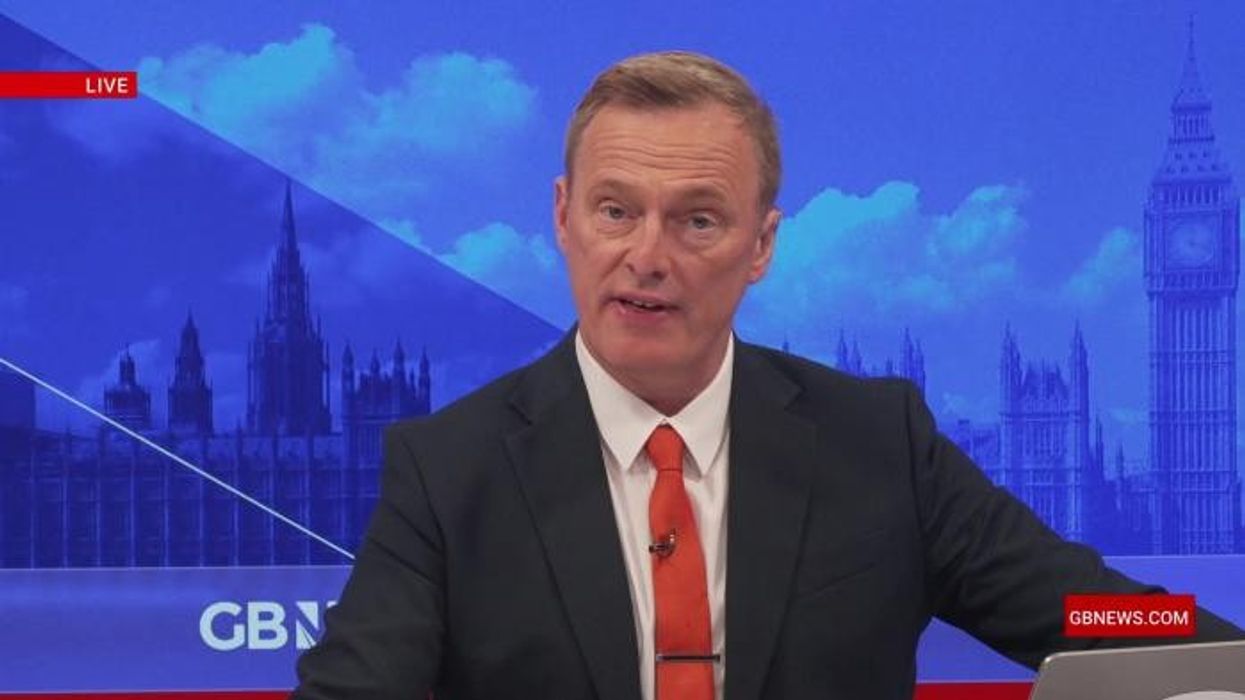Doctors spend four times more on paperwork than patients, new study reveals
The study comes just days after the Government launched its new 10-year plan to 'fix' the NHS
Don't Miss
Most Read
Trending on GB News
NHS doctors are spending four times more on paperwork than with patients, a new national study has revealed.
The research - the TACT Study - and carried out by scientists at Imperial College, London - is the first of its kind in the UK.
It shows doctors in training spend just 18 per cent of their time with patients and over 70 per cent doing administrative work such as writing notes, chasing test results, and filling out discharge letters.
The study comes just days after the Government launched its new 10-year plan to "fix" the NHS - including more community care, digital upgrades and a focus on prevention rather than treatment.

NHS doctors are spending four times more on paperwork than with patients, a new national study has revealed
|Getty
But the new research suggests the biggest problem is being sidelined: doctors are drowning in administration.
A team of doctors and researchers led by Dr Sammy Arab and Mr. Karanjot Chhatwal from Imperial College London and the National Heart and Lung Institute tracked 137 junior doctors in NHS hospitals over seven months between January and July 2024.
Using stopwatches, they precisely recorded how each minute of a four-hour work period was spent in real-time across multiple NHS hospitals in England.
The doctors were in training posts ranging from Foundation Year 1 to Specialty Training Year 8.
Tasks were grouped into five categories: History taking and examinations, procedural, discussions with the multidisciplinary team, administrative tasks, and breaks or teaching.
They discovered:
- Only 1 hour in 6 was spent with patients.
- 4 out of 6 hours were spent on administrative tasks.
- Doctors earlier in their career had less patient contact than senior ones.
- Women doctors spent more time on paperwork than men.
- Doctors using electronic systems spent even more time on administrative tasks than those using paper notes.
Experts say doctors need real experience with patients to learn how to diagnose and treat illness. But the report suggests they often don’t get enough time.
Robert Dingwall, a professor in social sciences at Nottingham Trent University said: "This is only one study but it is a useful reminder that what works in the models, simulations and imaginations of tech developers rarely transfers as successfully to real life. The Department of Health and Social Care should take care not to bet the farm on fools' gold."
And Professor Carl Heneghan, director of Oxford University’s Centre of Evidence Based Medicine said: “Doctors have to train for ten years to be consultants, developing the experience and expertise to recognise serious and life-threatening illnesses from the mundane.
"While AI has a role in areas such as interpreting X-rays and ECG, it is no replacement for a thorough history and examination when it comes to diagnosing disease. The widespread rollout of untested AI can waste resources and, as this study shows, harm patients seeking a diagnosis.”
Dr Sammy Arab said: “The heart of medicine is human connection. By reducing administrative overload, we can bring doctors back to the bedside, where they’re needed most."
Karanjot Chhatwal said: "We hope researchers, policymakers, and frontline teams use this data as a springboard, to drive positive change and to ensure the next generation of doctors can thrive."
"Every extra minute we give doctors with their patients is an investment in healing"
After each observation, doctors were asked to complete a satisfaction survey.
Of those who responded:
- 62 per cent reported moderate or high dissatisfaction with the amount of administrative work.
- Tasks most preferred by doctors were patient-related; admin tasks were least preferred.
The paper states: “Excessive non-clinical duties for resident doctors can result in poorer health outcomes and diminished patient satisfaction.”
The researchers said time taken on administration could lead to delays, miscommunication, and mistakes. And they say this paperwork overload is one of the main reasons they’re burning out and threatening to leave.
The study soon to be published in QJM (formerly the Quarterly Journal of Medicine) and published by Oxford University Press recommends urgent solutions:
- Give more admin tasks to trained assistants, not doctors.
- Use better computer systems - they say the current ones are slow and clunky.
- Let senior doctors spend more time mentoring younger ones.
- Set up a national NHS computer system, not different ones for every hospital.
Researchers say other countries have made these changes and seen big improvements. In Japan, cutting admin saved doctors time and boosted care.
More From GB News











